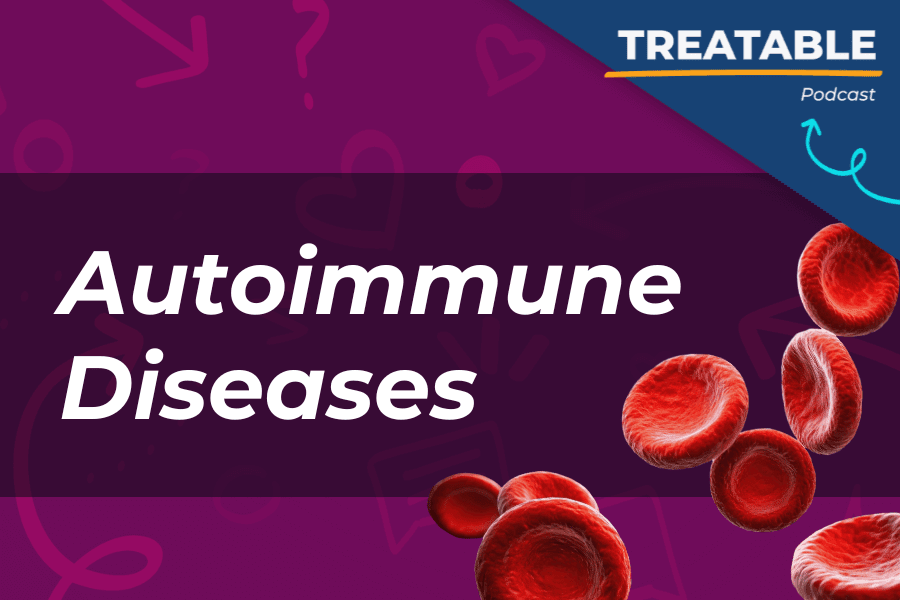Narcissism has become one of those terms that people love to throw around, often with a sense of disdain. We tend to associate narcissists with an insufferable sense of self-importance, and sometimes, outright unpleasantness.
But what truly makes someone a narcissist? In a recent episode of the “Treatable” podcast, host Clint Malley dove deep into this complex topic with expert guest Darren Elliott, shedding light on the often misunderstood and multifaceted nature of narcissism.
Let’s break down the conversation and understand how narcissism forms, its impact on relationships, and most importantly, how it can be treated.
The Basics: What is Narcissism?
In our modern lexicon, narcissism tends to be a “hot button” word. Darren Elliott explains that at its core, narcissism involves a profound disconnect from others.
“The main trait of someone suffering from narcissism,” says Darren, “is that they are not feeling with others.”
Essentially, a narcissist struggles with co-regulating emotions with others, leading to a lack of empathy.
This inability to engage deeply with others emotionally can lead to various defense mechanisms, making interpersonal relationships challenging.
The Root Causes: Early Childhood
Darren discusses how narcissism often stems from early childhood experiences, especially those involving trauma or neglect.
For instance, a child who cannot rely on a parent for emotional support may develop narcissistic tendencies as a way to cope.
“Children need to be felt and seen,” explains Darren.
When parents fail to provide emotional support, whether due to depression, anxiety, or neglect, the child learns to disconnect rather than co-regulate with their caregiver.
This disconnection can manifest in narcissistic behaviors later in life.
Emotional Regulation and the Lack Thereof
A significant part of Darren’s explanation focuses on the concept of emotional regulation.
Narcissists often display characteristics of nervous system dysregulation, which can disrupt how the brain processes and responds to emotional information.
This dysregulation can cause them to react disproportionately to stress and negative emotions, contributing to their often misunderstood behavior.
The Cycle of Trauma
Darren highlights that many narcissists have experienced traumatic events or environments growing up. These experiences often mimic conditions like PTSD, resulting in a perpetuation of trauma through generations.
If a parent suffers from PTSD and lacks emotional regulation, their children are likely to develop maladaptive coping mechanisms to deal with their disconnected caregivers.
Misconceptions and Misunderstanding
One of the key takeaways from the podcast is the common misconceptions surrounding narcissism.
It’s easy to vilify narcissists because of their egocentric behaviors, but it’s crucial to understand that these behaviors are often deeply rooted in past trauma.
Narcissists frequently project an image of grandiosity as a defense mechanism to mask their deep-seated insecurities and fear of inadequacy.
Different Shades of Narcissism
Not all narcissists exhibit overtly grandiose behaviors. Darren points out that some may even present themselves as perpetual victims, craving sympathy and validation.
This form of narcissism can be just as damaging as the more commonly recognized grandiose type.
Regardless of how it manifests, the underlying mechanisms are often the same: a profound sense of disconnection and an inability to engage emotionally with others.
Steps Towards Healing
The journey to healing from narcissistic tendencies begins with several crucial steps:
- Establishing Motivation to Change
The individual must find a personal reason to initiate change, often sparked by a desire for healthier relationships. - Developing Self-Compassion
It’s impossible to empathize with others without first being compassionate toward oneself. - Connecting with Others
Once self-compassion is established, the next step is to build meaningful, empathetic connections with others.
Darren emphasizes that deep, meaningful relationships are a cornerstone of mental health. Narcissists can learn to cultivate these relationships by understanding and addressing their emotional needs.
Conclusion: Seeking Support
Understanding narcissism requires a shift from simply labeling someone as inherently flawed to recognizing the trauma and disconnection that underpins their behavior.
As Darren notes, mental health is health, and seeking support is a healthy and necessary step for anyone struggling with these issues.
If you recognize these patterns in yourself or a loved one, consider reaching out to a mental health professional. Healing is possible, and it starts with awareness and a willingness to change.







